What Do Homebuilders Do? The Complete Career Guide
Get all the info you need to lay the groundwork for a thriving homebuilder career

The current low supply of existing homes and strong demand for new single-family residences nationwide are great news for homebuilders, per a recent HousingWire article. But even when the outlook isn’t quite as rosy, a homebuilder career is a sound choice in terms of income potential and other benefits. Here, we’ll explain why and give you all the details on topics such as how much money homebuilders make, what a homebuilder does and the builder career path in general.
Click a link below to jump to the section you're most interested in:
- What does a homebuilder do?
- Why become a homebuilder?
- Pros and cons of being a builder
- How much do homebuilders make?
- How many hours does a builder work?
- Are homebuilders in demand?
- Who do builders work with?
- What do builders wear?
- Traits of good homebuilders
- Should you explore the homebuilder career path?
- How to become a homebuilder

What does a homebuilder do?
There are four general categories of homebuilding:
- Luxury
- Residential
- Commercial
- Custom
Each is its own niche, but certain aspects are found in all. Consider the builder as the main coordinator for the entire job, making sure the people, products, plans, permits and more are in place so that the work gets done to the satisfaction of all the stakeholders. Of course this involves a lot of delegation; a builder often works with an architect, engineers, a project manager, subcontractors, staff and more. Now let’s look at each category individually.
What does a luxury homebuilder do? Big-budget projects with high-end materials and finishes are the focus here. The homes can be custom or not, but extra expertise is required given the budget and expectations.
What does a residential homebuilder do? Single- and multi-family homes as well as buildings with four or fewer units are the focus. The budget is often lower than in the luxury space, and the homes often are not custom.
What does a commercial homebuilder do? While commercial construction can be anything from fancy retail stores to basic infrastructure projects, homebuilders in this space focus on structures for living, such as apartment and condominium buildings and housing developments.
What does a custom homebuilder do? As the name reflects, this type of builder delivers residences that are unique to the client versus what’s available via more generic plans. The budgets are often higher than for other types of residential building that don’t involve a commercial aspect.

Why become a homebuilder?
Wondering if being a builder is a good career? Regardless of how much homebuilders make in terms of income, which we’ll get to below, the short answer is that for many people, the answer is yes; this is a rewarding career with a lot of potential in terms of both business success and personal satisfaction. The work tends to be stable no matter what the economy is doing, because the population is always growing and people need places to live.
You don’t need an advanced academic degree or many years of schooling to begin, and trade programs that can give you the necessary skills and training are widely available. Also, you won’t be stuck indoors at a desk job all day, will get to use your hands and will get to interact with a variety of people on a daily basis. Plus, you’ll have the incredible satisfaction of knowing you’re helping people fulfill their dreams of home ownership.
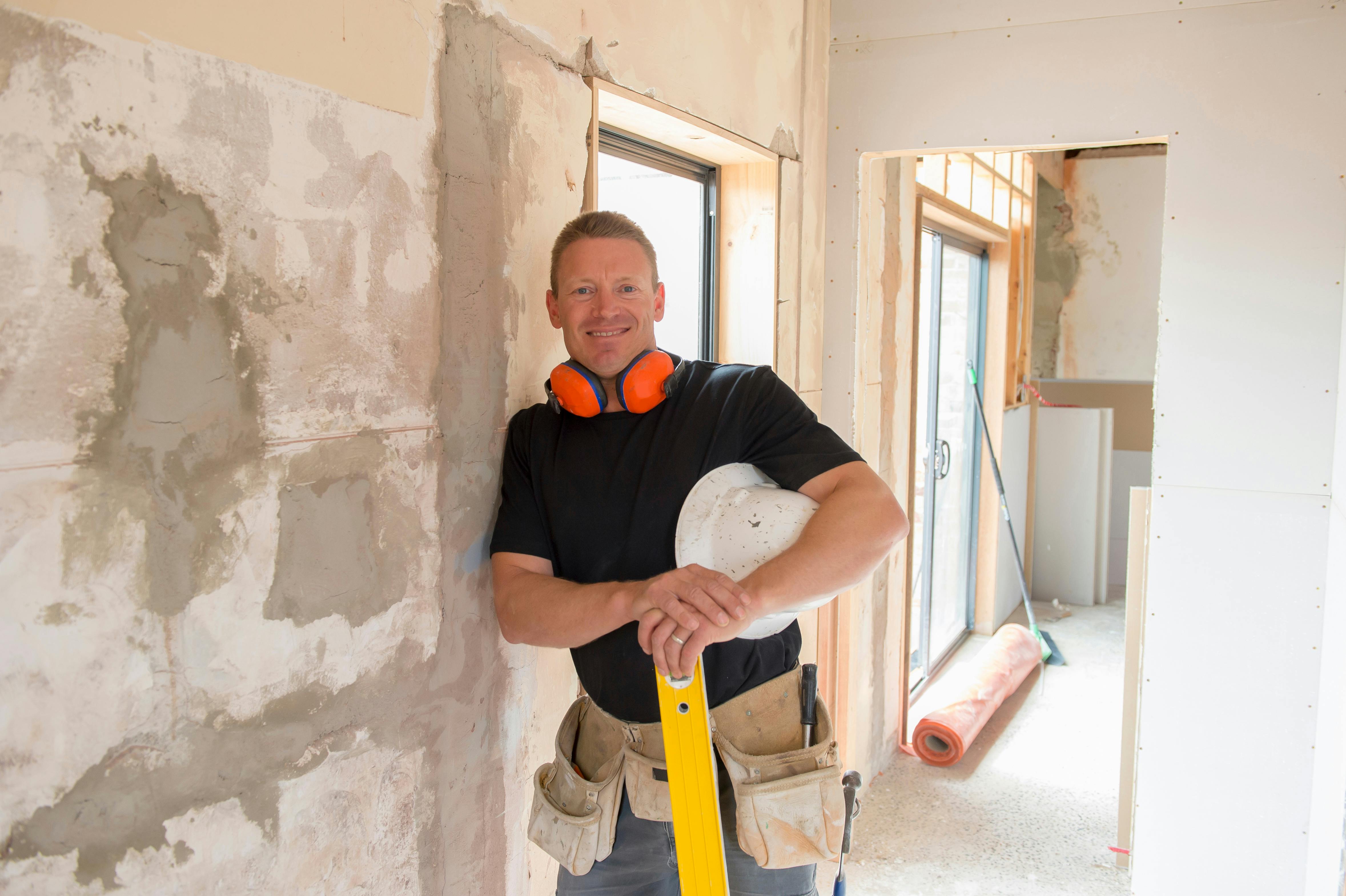
Pros and cons of being a builder
While there are many benefits, there are also some disadvantages of being a builder. Let’s break it down.
Advantages of being a builder:
- Generally stable work
- Plenty of opportunities for advancement
- Good pay
- Being outdoors and building muscles versus sitting at a desk indoors
- Meeting a variety of people
- Usually finishing the workday earlier than 5 p.m.
- You can work pretty much anywhere
- Job satisfaction
Disadvantages of being a builder:
- Potentially hard on the body, particularly the back and feet
- Often early start to the day
- Work can be hazardous, with potential for injury
- Projects are usually short-term and unpredictable
- Might have to work in inclement weather conditions

How much do homebuilders make?
This tends to be the most popular question for those exploring a home builder career. They wonder about general salary levels as well as have questions such as, “How much do homebuilders make per house?” and even “How do homebuilders make money?” First we’ll cover typical salary ranges, then we’ll move on to profit margins for building.
How much does a builder make per year? While salary of course can vary widely depending on locale, the U.S. average ranges from about $76,802 (per ZipRecruiter) to about $102,669 (per Comparably) per year. Those new to the field tend to earn less than more experienced builders; Zip Recruiter says it sees salaries as high as $106,328 and as low as $44,087.
How much does a luxury builder make per year? While luxury homes have a bigger budget, that might or might not translate into a higher salary depending on the company, the client and the specific project, but the ranges above are a good estimate: about $77,000 to about $103,000.
How much do custom homebuilders make? As with luxury builders, it depends on the company, client and project, but the ranges above are a good estimate: about $77,000 to about $103,000.
Now let’s look at typical profit margins for homebuilders, which can be more important than salary for business owners.
How much profit do builders make on a house? Typically this is expressed as a percentage of the total cost of the project, and that gross percentage currently is about 21%; net percentage is about 6% to 9%. In past years, the typical gross has been as low as 15%. That means if the typical single-family home costs $300,000 to build, then $63,000 of that would be the gross percentage and $27,000 would be the net profit (at 9%).
Luxury and custom homes tend to cost more than the average single-family home, so the profit figure would increase accordingly. Keep in mind that it’s essential to generate accurate takeoffs and estimates so you can keep your profit margins where you want them. Items a homebuilder typically shells out for include:
- Office expenses and overhead, including insurance
- Licenses and taxes
- Materials
- Jobsite labor and support staff
- Equipment rentals
Many things can affect profit margins, most notably changing costs for materials and labor. Thankfully, those are both getting back to more reasonable levels after pandemic-related shortages of both caused a spike in prices.
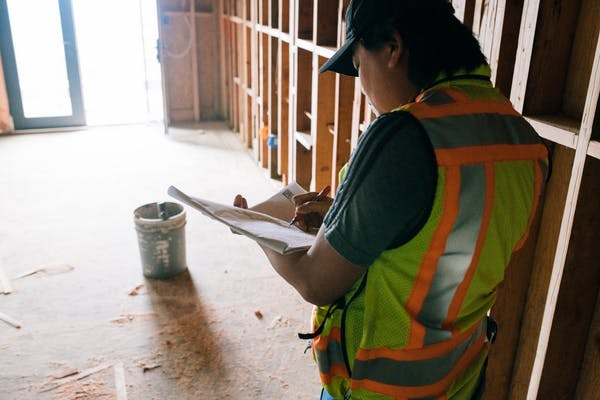
How many hours does a builder work?
As with many other aspects of homebuilding, the answer to the question “How many hours do builders work in a day?” varies, but generally the range is 8 to 10 hours a day, which translates to 40 to 50 hours for a Monday-to-Friday week. While residential homebuilders don’t usually work on weekends, sometimes it’s necessary to meet deadlines. Also keep in mind that a builder’s workday typically starts early, around 7 a.m.
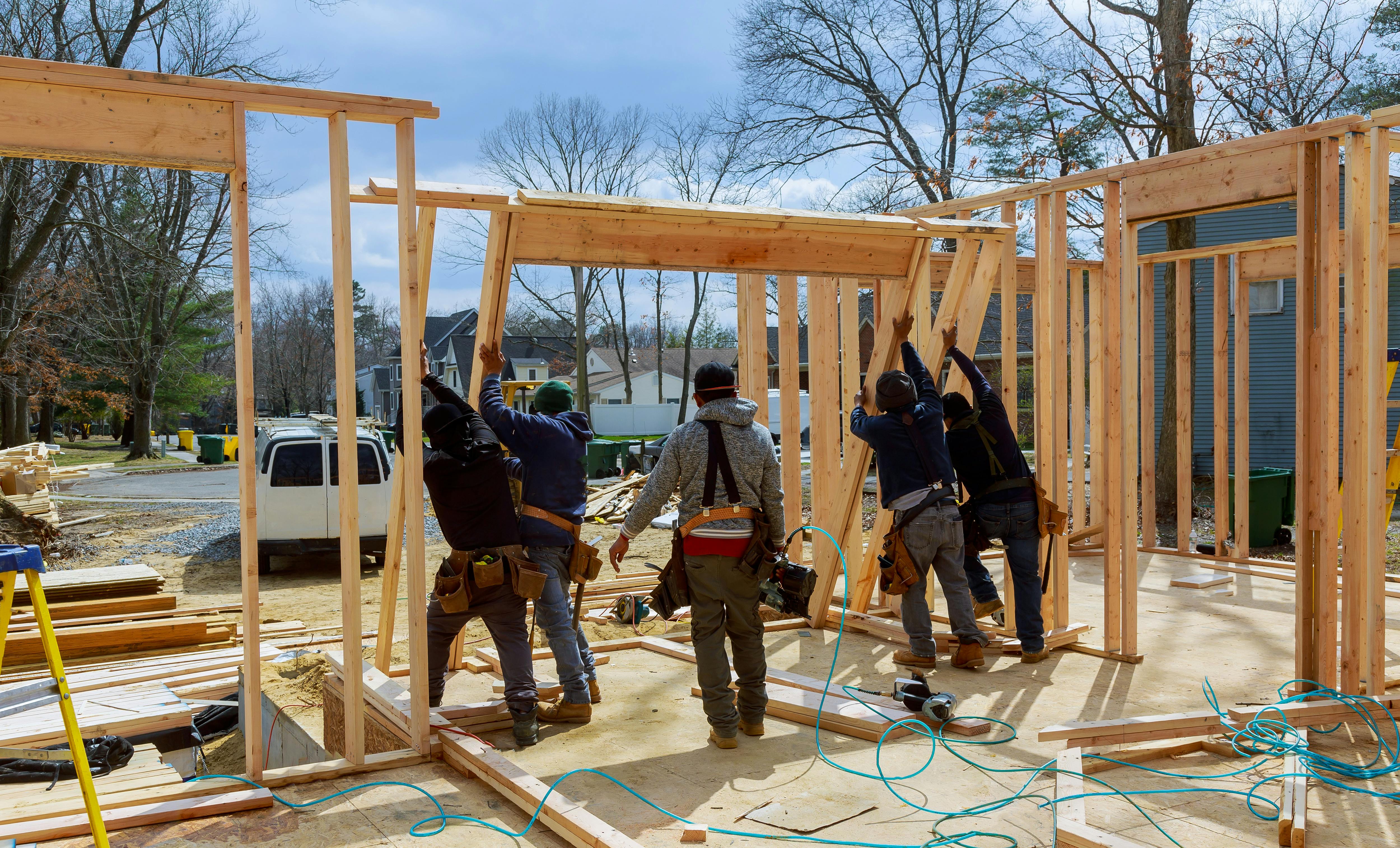
Are homebuilders in demand?
The short answer is yes, homebuilders are in demand and likely will continue to be for quite some time. According to the U.S. Bureau of Labor Statistics, the overall employment of construction laborers and helpers is projected to grow 4 percent from 2021 to 2031, which is about as fast as the average for all occupations the bureau provides data for. It is also estimating that there will be about 168,500 openings for construction laborers and helpers each year.
Employment for construction managers is projected to grow even more during the same period, by 8%, but the number of openings projected is smaller, about 41,500.

Who do builders work with?
The builder career path involved working with people in a wide range of jobs. Those can include:
- Clients (individuals and/or development companies)
- Architects
- Engineers
- Project managers
- City officials (for example, in the permitting office)
- Suppliers (of raw materials and finishes)
- Laborers (construction pros, cabinetmakers, tileworkers, flooring installers, etc.)
- Inspectors
- Other design pros

What do builders wear?
A homebuilder career, as you might have guessed, doesn’t involve suits and ties or skirts and heels. However, you won’t be wearing sweatpants and sneakers either. What builders wear depends on the specific role and type of work on the given day. Here are a few guidelines, no matter what gender you identify as.
Construction management clothing to wear: Think professional and pulled together but casual. Polo shirts, flannel shirts, khakis, chinos, sturdy closed shoes (such as casual boots that are comfortable and can be easily cleaned), a nylon or down jacket or vest, sunglasses and a watch; on the jobsite you might also wear steel-toed work boots and PPE (personal protective equipment): hard hat, protective goggles/glasses, work gloves and a reflective vest.
Construction laborer clothing to wear: Typically the look is more casual than for management: flannel shirts or even sweatshirts or tee shirts, jeans or loose khakis, and steel-toed work boots plus sunglasses, a watch, PPE (see above) and a jacket or vest on chillier days. Sneakers aren’t recommended (and in some places aren’t even allowed) because they don’t offer much traction or protection.

Traits of good homebuilders
The homebuilder career path involves many tasks beyond basic management Here are a few traits that good homebuilders often possess:
- Patience! With so many moving parts and a variety of personalities to manage, patience and a sense of calm are paramount. If you’re always stressed, everyone else on the team will be too.
- A strong work ethic and passion for the job
- Construction knowledge/skills
- Self-discipline
- Flexibility/an ability to roll with changes
- Organizational skills
- Financial/business sense (whether this is your strong suit or not, a great all-in-one software solution can make a world of difference here)
- Sales and marketing skills
- People and motivational skills
- Communication skills
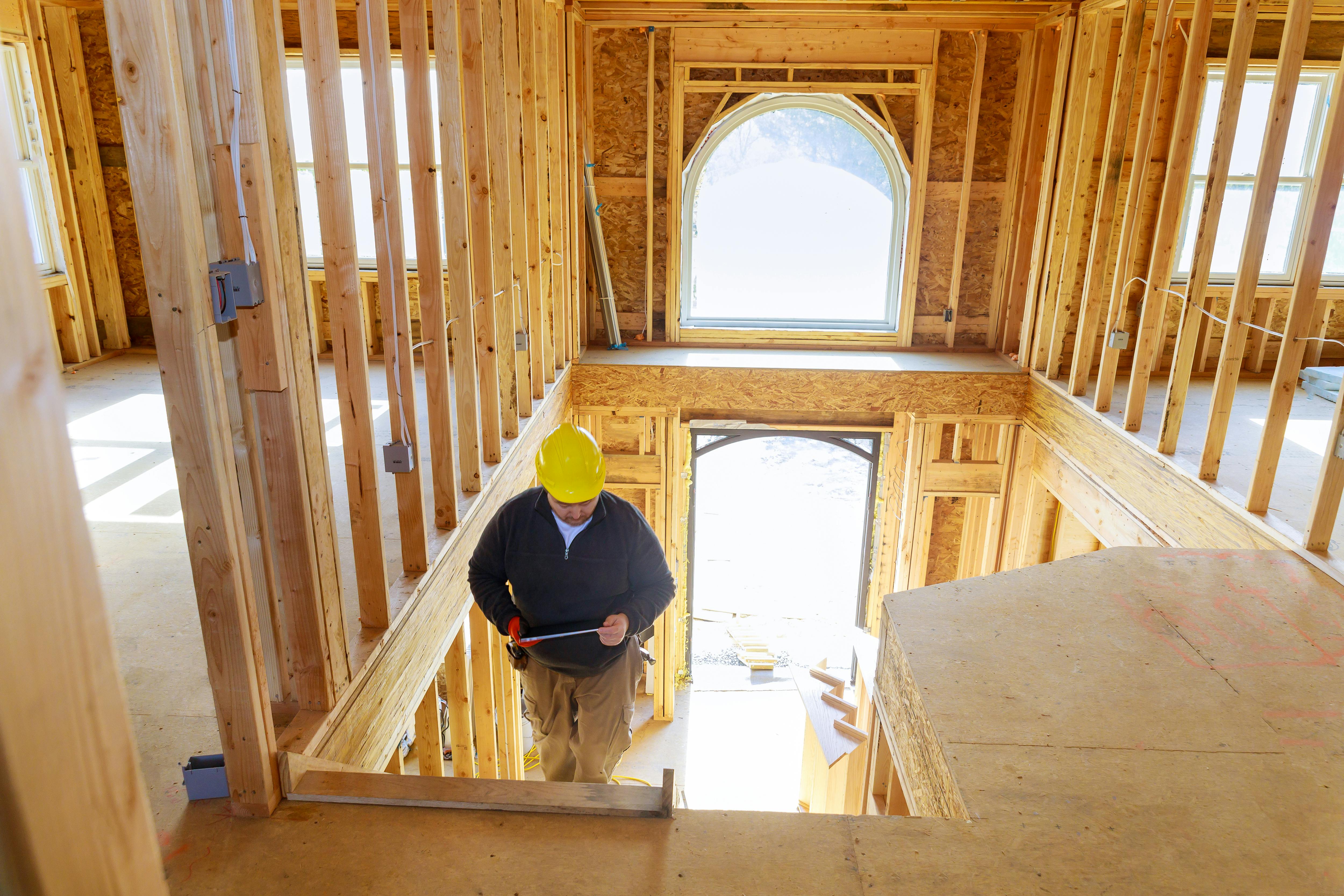
Should you explore the homebuilder career path?
A builder career path actually isn’t one straight road but rather several possible roads. Here are a few to consider:
- Construction. This is the one most people are thinking of when they wonder, “Is being a builder a good career?” It involves the physical labor and management needed to bring a structure to life.
- Sales. Construction sales representatives are needed to sell materials, equipment and other supplies to complete the project. They make pitches to potential buyers, follow up on leads and research and analyze sales strategies. You could be an entry-level sales agent, a local or regional manager or even a vice president.
- Purchasing. This person buys all the materials, supplies and equipment needed for the project, paying attention to delivery time frames and the client’s budget. As with sales, you could be an entry-level agent, a manager or even a vice president.
- Land acquisition. A house needs land to sit on, and someone needs to research potential plots to acquire. This can involve working with surveyors, engineers, investors and others to determine whether the land is suitable for building and in terms of cost.
- Land development. In the residential sector, land developers oversee the creation of new builds on a higher level than a project manager. They often work with bigger tracts of land than just a single home plot, and can oversee the creation of entire communities.
- Finance. This person researches comparable costs and profits of other similar projects to analyze whether a project is feasible, possibly working with one or more investors to make sure all the costs can be covered. The finance person also analyzes profit margins for a particular project and keeps track of all expenditures.
Related jobs also can help with training for a builder career path or be a good follow-up to one. These include:
- Project manager. Many of the skills required for homebuilding, such as organizational and analytical ones, translate well to this role. Typically this person works offsite in an office.
- Superintendent. While there are some similarities between a project manager and a superintendent, the latter usually works on a jobsite alongside the team of contractors as the foreperson.
- Owner. In this field, you can own anything from a small homebuilding company working with individual clients to a huge development firm handling hundreds of homes at once. You can also own a construction materials and supplies business, or an equipment rentals company.
To determine whether a homebuilder career path is right for you, consider:
- Do any of the above roles spark your interest? Is this something you could see yourself enjoying every day and getting personal fulfillment from?
- Does the salary range (see the section “How much do homebuilders make?” above) work with your current or desired lifestyle?
- Do you have the right traits? (See the section “Traits of good homebuilders” above.)
- Do you currently have any training, or would you be willing to get training through a trade school or on the job?
If the answer is yes to all of the above, then a builder career path could be right for you.
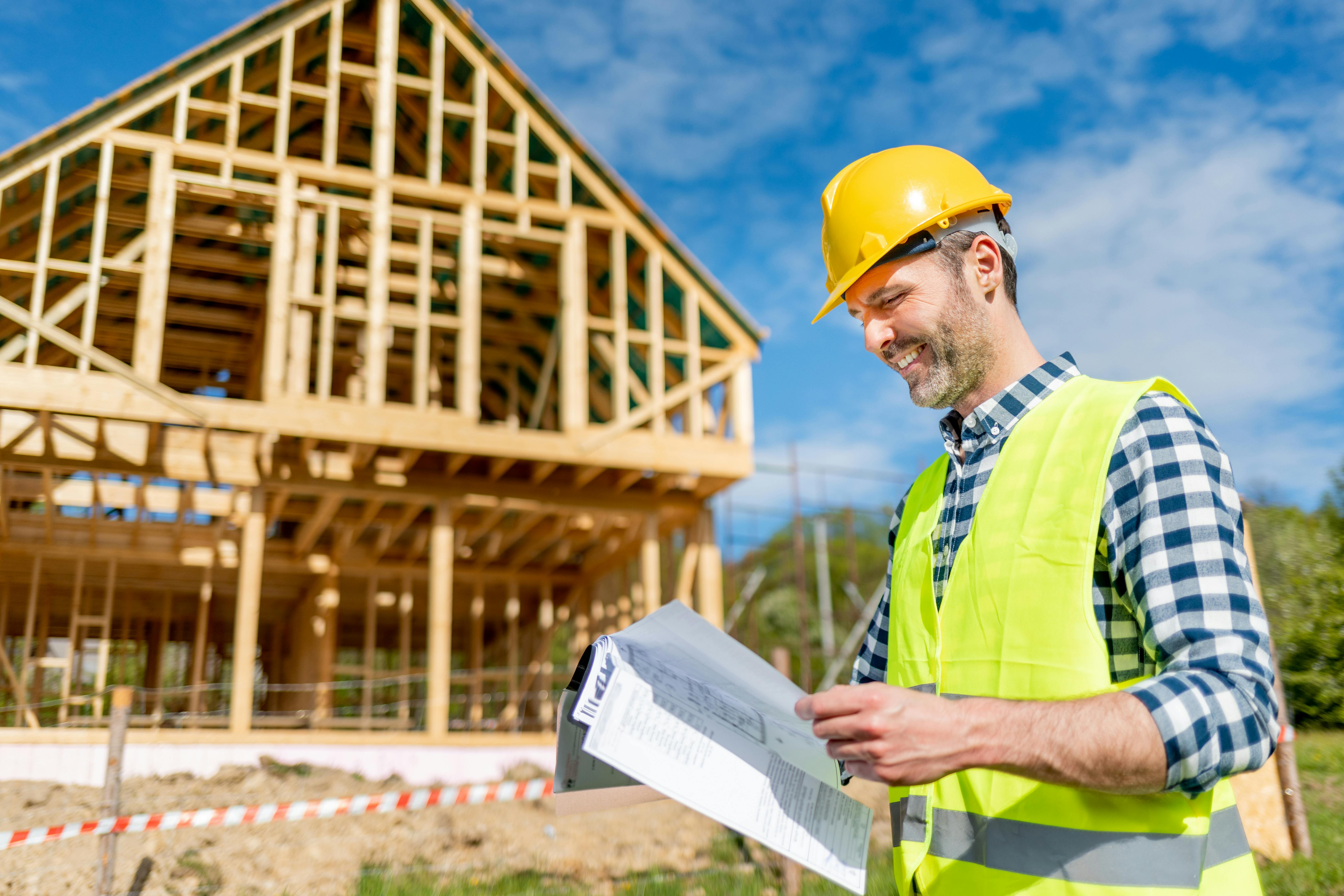
Conclusion
If you’ve decided that that homebuilder career path is the right choice, congratulations! You’re about to embark on a rewarding undertaking that is vital to the happiness and stability of people all over the country. While the topic of how to become a homebuilder requires an article of its own, here are a few general guidelines:
- Determine whether you need a license.
- Determine how much it costs to be a builder.
- Learn state and federal requirements.
- Learn how long it takes to become a builder.
- Set your sights on the goal.
Learn more in our full guide on How to Become a Homebuilder. Once you’ve finished reading this guide to the homebuilder career, the next steps are up to you. Believe in yourself and always remember that you will be providing a much-needed service — one that will fill a basic human need and can even fulfill people’s dreams.

Want advice delivered to your inbox?
Unlock industry insights and updates for contractors and design pros
By signing up, I agree to the Houzz Terms of Use and Privacy Policy and that Houzz may use my information to contact me about relevant content, products, and services.




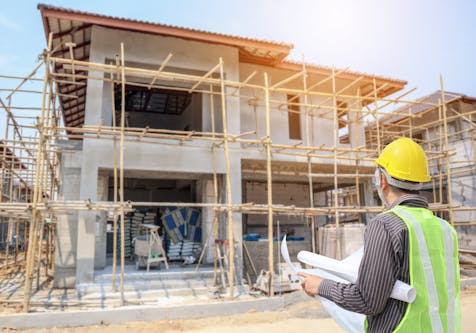




Join the conversation by commenting or asking a question below. The Houzz team reads every single comment, and we’ll get back to you by email if you need us!